Description
Book Abida Parveen
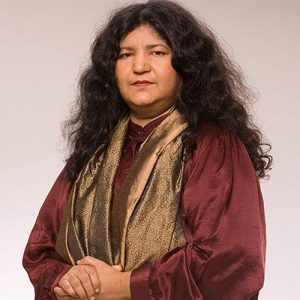
Abida Parveen is a Pakistani singer counted amongst the world’s greatest mystic singers and one of the foremost exponents of Sufi music (Sufiana kalaam). The versatile singer is primarily a singer of ghazals and sings in several languages including Urdu, Sindhi, Saraiki, and Punjabi. Born into a family that boasts of a rich musical legacy, she was introduced to the world of Sufism and music at a young age. Her father recognized the potential his daughter possessed and personally trained her in music when she was young. She started singing when she was three and displayed such a deep love for music that her father decided to defy tradition and chose her as his musical heir over his two sons. She went on to receive her higher musical training from the music school which her father had founded and was also trained by the great Ustad Salamat Ali Khan of the Sham Chorasia gharana. Initially she performed at Dargahs and Urs before embarking on a professional career with Radio Pakistan. She brought Sufi music to a new level and proceeded to become one of the best known mystic singers not just in her native Pakistan, but throughout the world because of which she has been dubbed as the Uncrowned Empress of Sufi Music and Undisputed Sufi Queen. Her famous song includes “Chaap Tilak”
Introduction
Abida was born in Larkana (Sindh province, Pakistan) in 1954. She received her musical training initially from her father, Ghulam Haider, and subsequently from Ustad Salamat Ali Khan.
She embarked upon her professional career from Radio Pakistan, Hyderabad, in 1973. Her first hit was the Sindhi song “Tuhinje zulfan jay band kamand widha”. This song had been sung by many other Sindhi singers before her, but Abida brought her own unique style to it, rooted in classical music.
Although she is associated most closely with the verses of the Sufi saint Shah Abdul Latif, she has also sung the verses of other Sufi saints, including Amir Khusrau, Bulleh Shah, Sachal Sarmast, Sultan Bahu, and others such as Kabir and Waris Shah.
In recent years, it has become fashionable to call Abida the true inheritor of the mantle of Nusrat Fateh Ali Khan, a giant of Sufi music who died in 1997. While such judgements are necessarily subjective, there is certainly much that Abida has in common with Nusrat. Like him, she possesses a truly magnificent voice, is unassuming despite her superstar status, and her music is informed by a deep commitment to the ideals of Sufism. For both, the act of singing is a passionate offering to God, and for both the deepest part of their magic lies in the fact that they are able to bring the listener’s heart to resonate with the music, so deeply that we ourselves become full partners in that offering.
Abida Parveen is regarded as a singer who has compromised neither the form nor content of her classical training while nevertheless retaining a compelling freshness that is endearing to a contemporary and often younger audience. Her singing has been compared to Afro-American Blues and Jazz singers like Nina Simone, Billie Holliday and Mahalia Jackson. While this comparison may have merit, it would be technically inaccurate to compare classically trained devotional singing to Jazz or Blues traditions. Where these two traditions do occasionally meet, however, is in the deep soul-searching, the melancholy that is sometimes expressed in anticipation of the divine release of the soul from its earthly torpidity and bondage. The only western style of singing remotely comparable to Abida’s would be certain forms of sacred music, for example the Tallis Scholars. Sacred music, like sacred art, draws its inspiration and technical brilliance from years training at the feet of a musical director, spiritual Guru or Ustad in Urdu. Such training is incomplete without devotional homage to the teacher and an understanding of the ideals of transcendence as well as immanence in artistic expression. This training, under a good Ustad can take the shape of heightened awareness of the healing and spiritual properties of music, much like Nada Siddha, the inner sounds discovered through deep meditation and yoga under a competent Guru. Abida has repeatedly said that her singing has many healing effects on the listener, and in this sense Abida may be compared to the great North Indian musician, Tansen, whose music was said to have created spontaneous and miraculous effects on his listeners.
Abida is perhaps equally renowned as an accomplished Ghazal singer in Urdu and Sindhi, and an exponent of Punjabi, Urdu and Sindhi Sufiana Kalam, which literally translates as the ‘Sayings of the Sufis’, comprising the poems and aphorisms of the great Sufis of the Indian sub-Continent. Sufiana Kalam is also closely aligned to Sikh Punjabi devotional singing, otherwise known as the “Shabad Kirtan tradition”. It is always interesting to witness, in times of heightened communal tensions in the Indian Sub-Continent, Abida’s husky but equally delicate voice proclaiming a deeper bond of Universal Love that soars above the boundaries that divide religious and secular denominations. In this sense, her message can be compared to the likes of Kabir and Nanak, both of whom united Hindu and Muslim. The mystical aspect of Abida’s musical message contains broad humanitarian appeal.
Abida Parveen has been gifted with perhaps one of the very greatest female voices of recent times for the proclamation of arguably one of the most important messages of our time. Abida has received many prestigious music awards for her singing, and is often invited to music festivals in India and abroad. Widely and professionally regarded as the “Singers’ Singer” or the Artists’ Artist, it is not surprising that her admirers include some of the very best singers of the sub-continent. Although she is not as well known as Nusrat Fateh Ali Khan in the West, Abida regularly tours the USA, Europe and the UK. Book Abida Parveen by clicking on the following link.


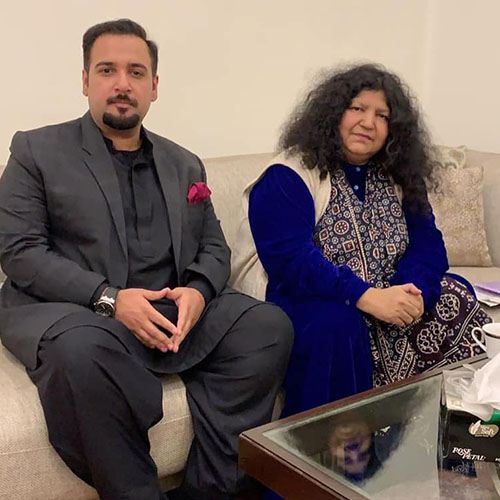
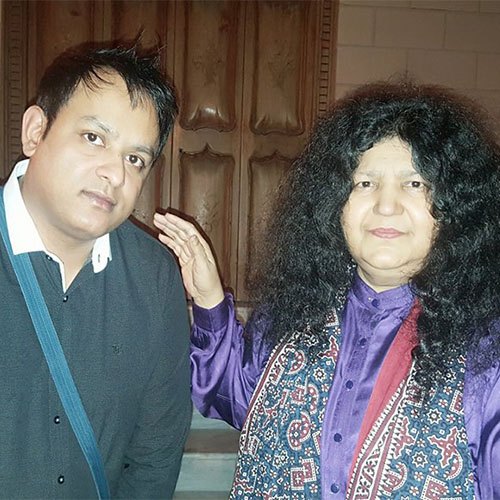
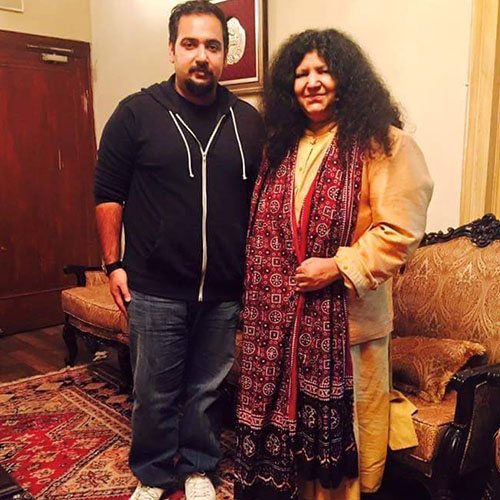
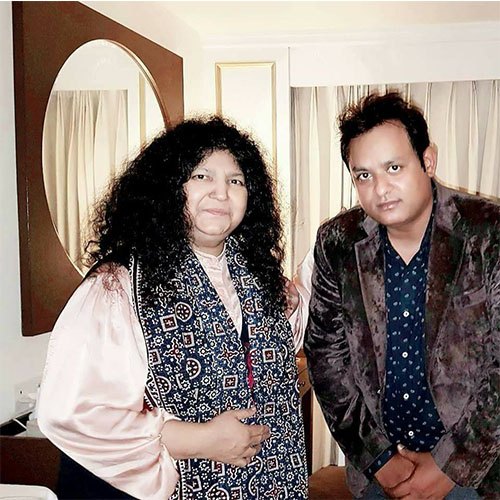





Reviews
There are no reviews yet.